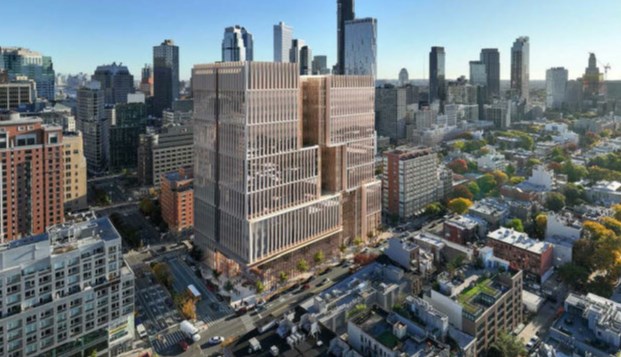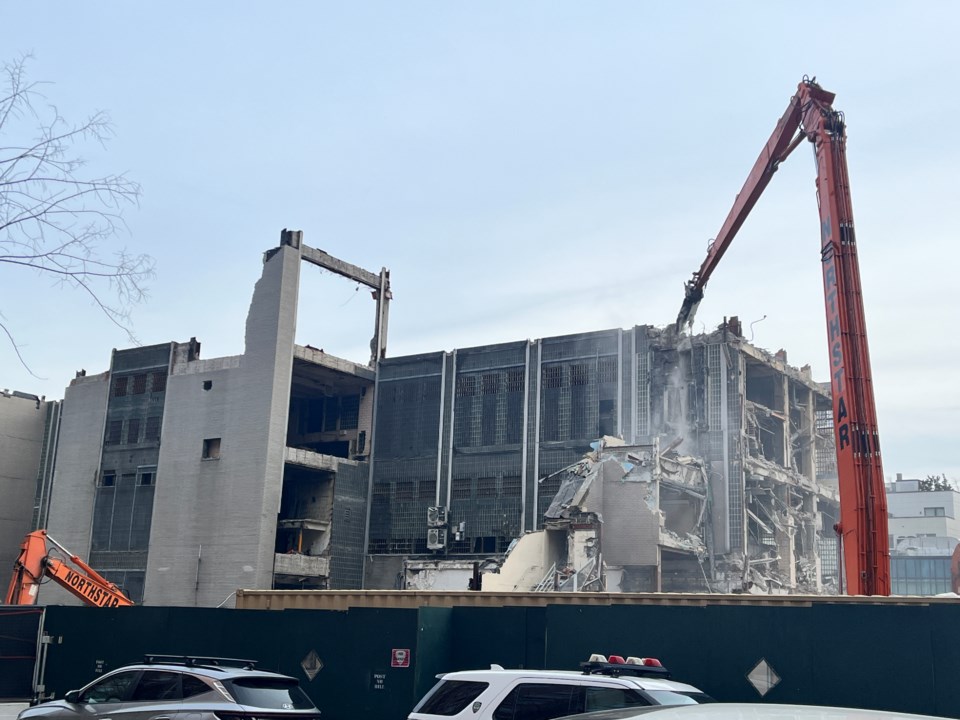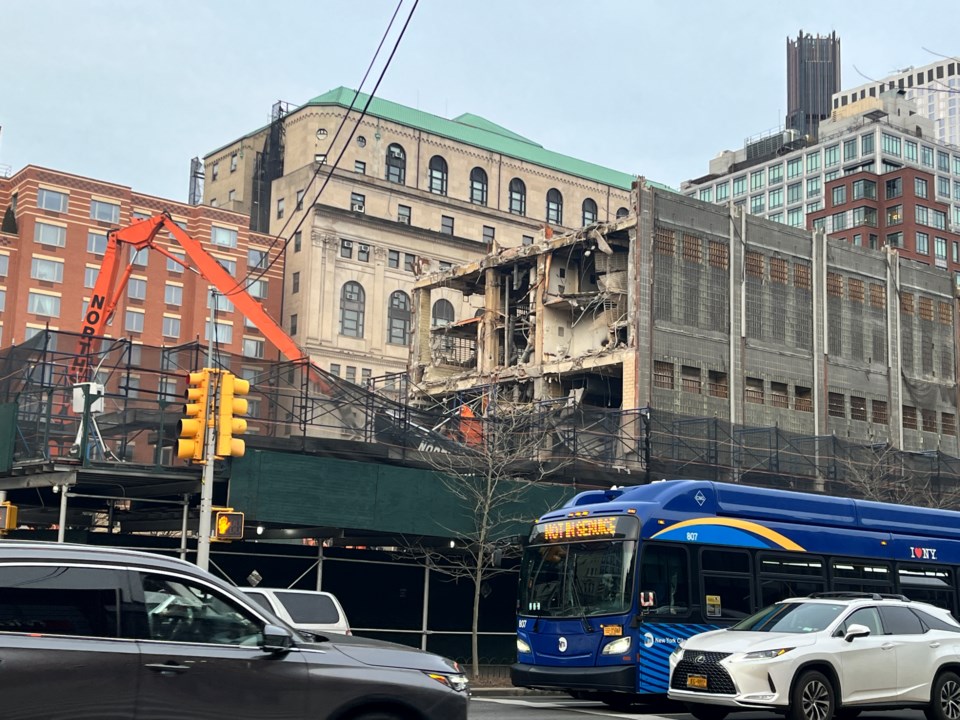Work on a new jail is shaking up downtown Brooklyn—literally and physically.
For over a year, workers from NorthStar Contracting Group have been tearing down the former Brooklyn House of Detention to make room for a new 15-story jail at 275 Atlantic Avenue.
Residents of Boerum Hill and downtown Brooklyn say the daily noise, dust, vibrations, and traffic congestion generated from the project have been unsettling. Community members and Council Member Lincoln Restler, whose district includes Downtown Brooklyn, said they have tried to work with the city to resolve the issues, but multiple calls, 311 complaints, and numerous emails later, they feel as if their concerns have fallen on deaf ears.
“We never expected demolition to be quiet or dust free or a pleasant experience,” said Lori Richmond, who lives across the street from the construction site. “The Department of Design and Construction and the city apparently forgot that they're operating in the middle of a residential neighborhood with people that live here and schools and businesses.”

The new facility is one of four new borough-based jails set to open in the coming years. The others will be located in Manhattan, the Bronx, and Queens.
The squadron of new detention centers is intended to offset the closure of Rikers, which, according to the Board of Correction’s most recent semi-annual report, had an average monthly population of 6,049—“nearly double the borough-based jail capacity.” Each jail, including Brooklyn, is expected to house a total 1,040 people, according to the Department of Design and Construction (DDC).
The Brooklyn project website promises a modern structure that looks like a high-end residential building. But the process to get the building up and running has been anything but glamorous.
“I think we’ve gotten off to a very rocky start here,” said Councilmember Lincoln Restler in a February virtual community meeting.
Restler called out the DDC for its lack of communication and seemingly nonstop construction hours, which are currently Monday to Friday, 7 am to 9 pm, and Saturday, 9 am to 5 pm.
“As with every project, DDC has prioritized the safety and quality of life of community members and residents near this site, and the department has gone to significant lengths to mitigate the impacts of this project by keeping neighbors informed and incorporating feedback as the project moves forward,” a spokesperson from DDC told BK Reader. “We encourage any community member with concerns or comments to join our monthly meetings.”
During the recent community meeting, Nevin Vages, who lives on Boerum Place, said his building has been shaking three to four times a day for several months. Even residents who live blocks away on Court and Pacific Streets have reportedly felt the vibrations.

The relentless shaking isn’t the only concern. Sandy Balboza, a long-time resident and neighborhood advocate who lives a half a block away from the construction site on Atlantic Avenue, expressed consternation over the plumes of dust migrating down the street from the construction site. Balboza said the dust isn’t being properly maintained and worries it could be hazardous.
“It's demolition material that we shouldn't be breathing,” she said.
During the February meeting, Lauren Micir, an associate in the urbanism and planning division at AECOM Metro New York, the company contracted by the city to manage the four borough jail projects, said they’ve deployed water misting machines, or “Dust Bosses,” to mitigate the dust issue. She also assured residents that noise, air and vibration monitors are checked daily to ensure that nothing exceeds safe limits. The project has been “closely supervised by regulatory agencies,” she added.
Once the demolition process is completed later this month, construction on the new building will begin this spring, said Micir.
The Brooklyn detention facility website says that construction is expected to be completed by 2027. However, a March progress report from the Board of Corrections indicated that the goal to close Rikers by 2027 is not on track to be met and that the Brooklyn-based jail is more likely to be completed by 2029, two years later than anticipated.
“I think it's important to note that this community has been supportive of the Rikers plan,” said Richmond. “But what we will not tolerate is the total disrespect of our neighborhood and the process of them doing this.”



.png;w=120;h=80;mode=crop)
